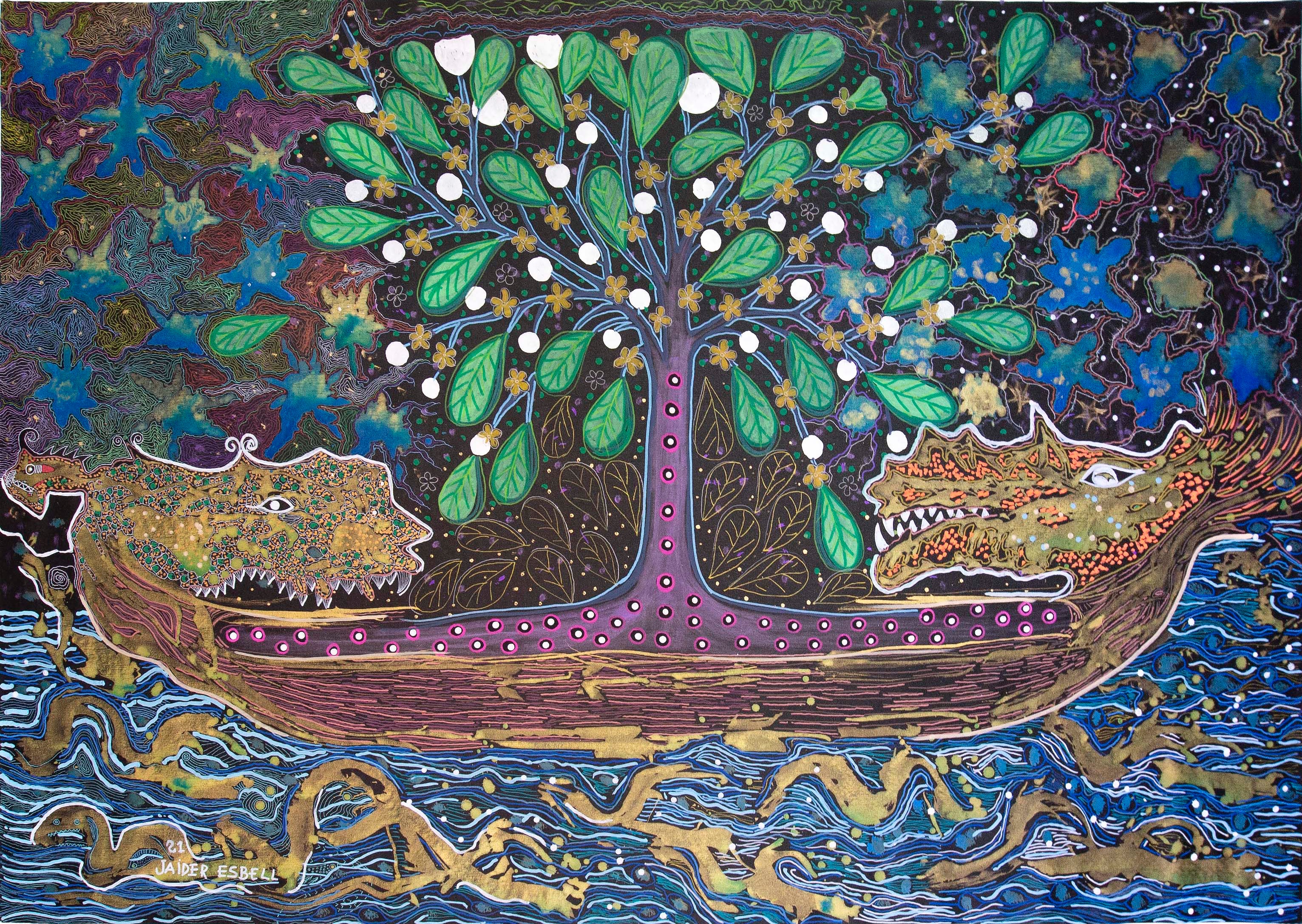Antropofagias futuras, seus tempos e textos
DOI:
https://doi.org/10.26512/dasquestoes.v11i1.37229Keywords:
editorial, antropofagia, revista das questõesAbstract
.
Downloads
References
BENSUSAN, Hilan. Linhas de animismo futuro, Brasília (DF): IEB / Mil Folhas, 2017.
BERARDI, Franco. Depois do futuro. Trad. Regina Silva. São Paulo: Ubu, 2019.
CEPP AS, Filipe. “Oswald contra o Patriarcado. Antropofagia, matriarcado e complexo de Édipo”. In: Léa Silveira; Alessandra Parente (Org.). Freud e Patriarcado. 1ed. São Paulo: Hedra, 2020.
CHNAIDERMAN, Miriam. “Esfarelando tempos não encimesmados”, in Ágora, v.VI, n.2, jul/dez 2003, p.235-250.
ESBELL, Jaider. “Makuanima, o meu avô em mim!”. In: Iluminuras, v. 19. Jan./jul, 2018.
FERNANDES, Florestan. “Tendências teóricas da moderna investigação etnológica no Brasil”. In: A etnologia e a sociologia no Brasil. São Paulo: editora Anhambi, 1958.
KILANI, Mondher. Du goût de l'autre. Fragments d'un discours cannibale. Paris: Éd. du Seuil, 2018.
LA BOÉTIE, Etienne de. Discurso da servidão voluntária. Trad. Laymert Garcia dos Santos. São Paulo: editora Brasiliense, 1999.
MONTANARI, Angelica. Cannibales. Histoire de l'anthropophagie en Occident. Paris: Arkhê, 2018.
NODARI, Alexandre. “A metamorfologia de Macunaíma: notas iniciais”. In: Crítica Cultural, v. 15, n.1. jan./jun. 2020.
NODARI, Alexandre. “‘A tranformação do tabu em totem’, notas sobre (um)a fórmula antropofágica”, in das Questões, n.2, fev/mai 2015, p.8-44.
PENNA, João Camillo. “Máquinas utópicas e distópicas”. In: Novaes, Adauto (org.). Mutações. Ensaios sobre as novas configurações do mundo. Rio de Janeiro: Agir; São Paulo: Edições SESC SP, 2008.
ROCHA, João Cézar de; Ruffinelli, Jorge. Castro Antropofagia hoje? Oswald de Andrade em cena. São Paulo: É realizações, 2011
SÁ, Lúcia. Literaturas da floresta: Textos amazônicos e cultura latino-americana. Trad. Maria Ignez França. Rio de Janeiro: eduerj, 2012.
SPIVAK, Gayatri Chakravorty. Pode o subalterno falar? Trad. Sandra Regina Goulart lemida et ali. Belo Horizonte: Editora UFMG, 2010.
STADEN, Hans. Duas viagens ao Brasil. Trad. G. de Carvalho Franco, São Paulo: Itatiaia / Edusp, 1974.
VANDENBERG, Vincent. De chair et de sang. Images et pratiques du cannibalisme de l'Antiquité au Moyen Âge, Rennes: Presses Universitaires de Rennes, 2014.
VESPÚCIO, Américo. “As quatro navegações”. In: Novo Mundo. As cartas que batizaram a América. Trad. Eduardo Bueno. São Paulo: Editora Planeta do Brasil, 2003.
VILLENEUVE, Roland. Histoire du cannibalisme. De l'anthropologie rituelle au sadisme sexuel. Paris: Camion Noir, 2016.
VIVEIROS DE CASTRO, Eduardo. A inconstância da alma selvagem – e outros ensaios de antropologia. São Paulo: Cosac Naify, 2002.
VIVEIROS DE CASTRO, Eduardo. “Etnologia brasileira”. In: O que ler na ciência social brasileira (1970-1995). Antropologia (volume 1). Miceli, Sérgio (org.). São Paulo: Editora Sumaré: ANPOCS; Brasília, DF: CAPES, 1999.
VIVEIROS DE CASTRO, Eduardo. Araweté: os deuses canibais, Rio de Janeiro: Zahar, 1986.
WINOGRAD, Monah. “Freud e a filogenia anímica”, in Revista do Departamento de Psicologia - UFF, v.19 - n.1, p.69-82, Jan./jun. 2007.
Downloads
Published
How to Cite
Issue
Section
License
Copyright (c) 2021 Das Questões

This work is licensed under a Creative Commons Attribution-NonCommercial 4.0 International License.
Authors who publish in this journal agree to the following terms:
Authors maintain the copyright and grant the journal the right of first publication, the work being simultaneously licensed under the Creative Commons Attribution License which allows the sharing of the work with recognition of the authorship of the work and initial publication in this journal.
Authors are authorized to take additional contracts separately, for non-exclusive distribution of the version of the work published in this journal (eg publish in institutional repository or as a book chapter), with acknowledgment of authorship and initial publication in this journal.
Authors are allowed and encouraged to publish and distribute their work online (eg in institutional repositories or on their personal page) at any point before or during the editorial process, as this can generate productive changes as well as increase the impact and the citation of the published work.



